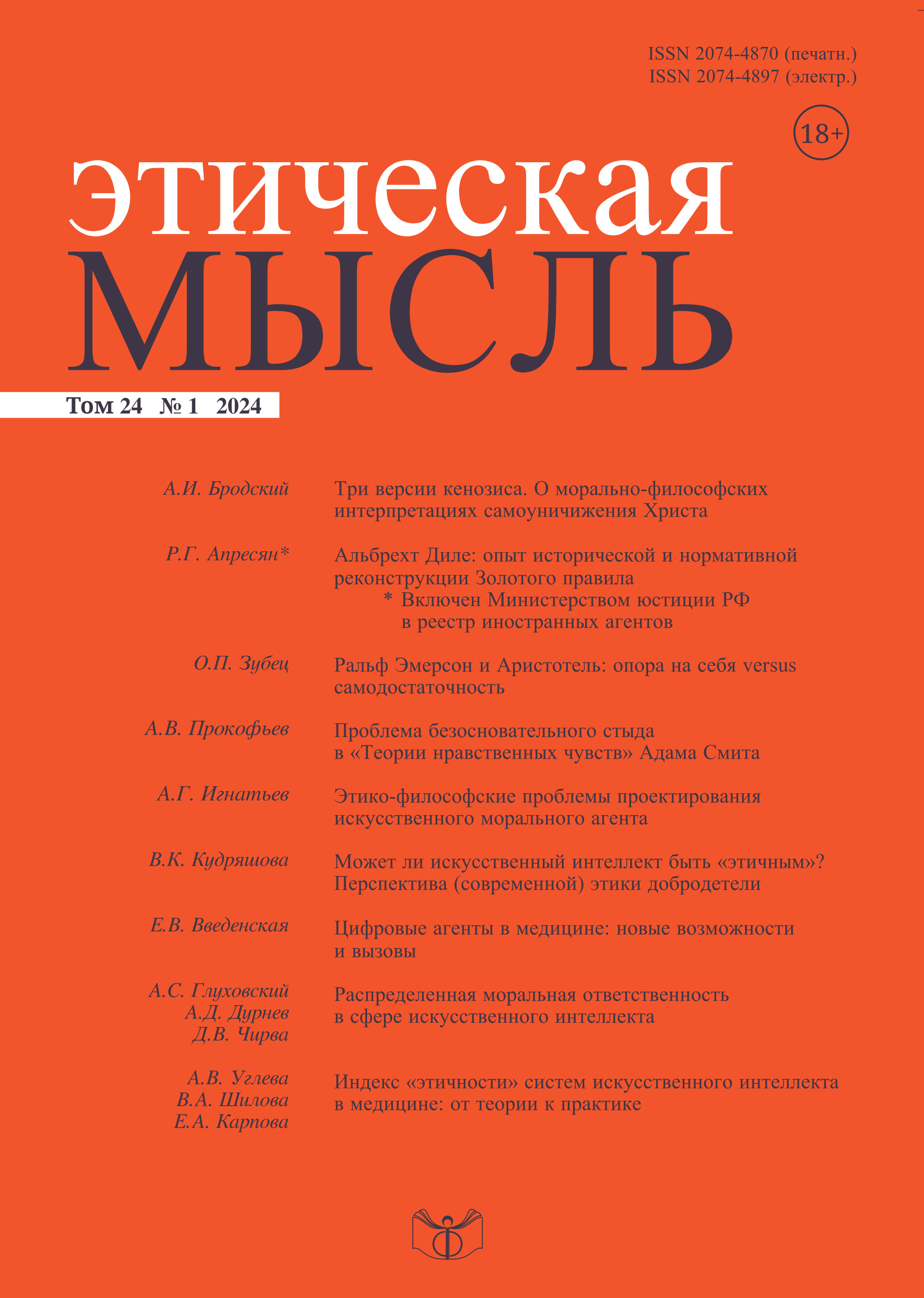The Problem of Groundless Shame in Adam Smith’s The Theory of Moral Sentiments
DOI:
https://doi.org/10.21146/2074-4870-2024-24-1-70-86Keywords:
morality, history of ethics, moral evaluation, blame, shame, poverty, A. SmithAbstract
The paper deals with Adam Smith’s statement and solution of the problem of groundless shame, i.e. shame that is not connected with actual violations of moral principles and arises due to the fact that people around the agent condemn him or consider his situation shameful. The problem is posed by A. Smith in the course of the discussion of four natural drives: the love of praise, the love of praise-worthiness, the dread of blame, the dread of blame-worthiness. Smith notices a remarkable asymmetry among them: undeserved praise gives the wise and virtuous man no pleasure, while undeserved blame causes him quite intense suffering. It “throws a shadow of disgrace and dishonor upon his character”, makes him feel “humbled”, etc. In some passages of The Theory of Moral Sentiments, A. Smith, if not approving of such feeling, at least recommends taking all measures to prevent undeserved blame and ensuing shame. In other passages he treats the dependence of a moral agent’s feelings and behavior on undeserved blame as an apparent moral weakness (“slavery to the world”). In the former case, A. Smith discusses mainly undeserved blame based on erroneous attribution of actions and motives, in the latter case, he means the blame based on distorted or outright wrong evaluation criteria. Two important examples of the shame evoked by using bad criteria are the shame of poverty and the shame of practicing “unfashionable virtues”. A. Smith, unlike David Hume, considers the shame of poverty and the corresponding pride in wealth, despite their deep roots in human nature and apparent societal benefits, groundless. The shame of practicing “unfashionable virtues” has this status by definition.









